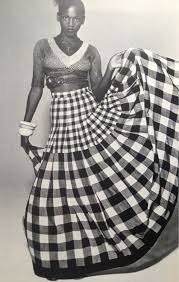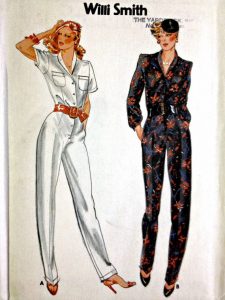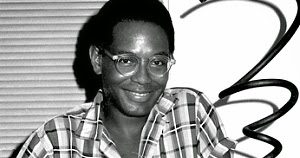
Willi Donnell Smith (February 29, 1948 – April 17, 1987) was an American fashion designer. At the time of his death, Smith was regarded as one of the most successful African-American designers in the fashion industry. His company, WilliWear Limited, launched in 1976 and would go on to sell $25 million worth of clothing a year. After Smith’s death, his business partner continued the line with various designers creating collections. Without Smith, the company floundered. Due to financial problems and poor sales, WilliWear Limited ceased production in 1990.
 Smith was born in Philadelphia, Pennsylvania, and studied commercial art at Mastbaum Technical High School and attended Philadelphia College of Art for fashion illustration. He then moved to New York City to go to Parsons The New School for Design, the art and design college of The New School.
Smith was born in Philadelphia, Pennsylvania, and studied commercial art at Mastbaum Technical High School and attended Philadelphia College of Art for fashion illustration. He then moved to New York City to go to Parsons The New School for Design, the art and design college of The New School.
In 1967, Smith quit Parsons to pursue a career designing on his own. In 1969, he designed a label for Digits, a sportswear company. In 1973, Smith, along with his sister Toukie Smith, founded their own clothing company that soon failed. Smith continued to design and in 1976, he went into business with Laurie Mallet and called the company “WilliWear Limited.”
He designed the wedding dress worn by Mary Jane Watson when she married Peter Parker in the Spider-Man comic book and comic strip in 1987, and the suits for Edwin Schlossberg and his groomsmen when he married Caroline Kennedy in 1986. Smith also designed the uniforms for the workers on Christo’s 1985 wrapping of the Pont Neuf bridge in Paris and clothes for Spike Lee’s film School Daze (1987).
Smith worked with many other designers and artists during his time at WilliWear including Antthony Mark Hankins, James Mischka, Julia Santos-Solomon, Jon Coffelt, John Bartlett and Andre Walker, among many others. Smith partnered with Jhane Barnes on some of his earlier shows. Smith was the costume designer for Secret Pastures, which premiered at Brooklyn Academy of Music’s Next Wave Festival in 1984, one of Bill T. Jones/Arnie Zane Dance Company’s first major works.
On April 16, 1987, Smith was admitted to Mt. Sinai Medical Center in New York City after contracting shigella and pneumonia while on a fabric buying trip to India in February 1987. He died of pneumonia complicated by shigella the following day at the age of 39. According to Smith’s lawyer Edward Hayes, Smith’s death was AIDS related. Smith was apparently unaware that he had contracted the disease and had shown no symptoms. It was only after he was hospitalized that tests revealed he was HIV positive. Laurie Mallet, Smith’s business partner, later said that while the designer was always “fragile” and often too sick to work, she did not feel that he was seriously ill. When asked if Smith had any idea that he had AIDS, Mallet said that Smith never confided this to her, but she felt “maybe he had some idea, some feeling.”[5]Smith’s funeral was held on April 20 at the Frank E. Campbell Funeral Chapel in Manhattan, after which his remains were cremated. On May 1, 1987, a memorial service was held for Smith at his alma mater, Parsons The New School for Design.
Smith, who was openly gay, has a panel in the original NAMES Project AIDS Memorial Quilt. Smith is also lamented in a poem “Speak: A Poem for the Millennium March”, by Keith Boykin, read by its author for the Millennium March on Washington for Equality on April 29, 2000.
lamented in a poem “Speak: A Poem for the Millennium March”, by Keith Boykin, read by its author for the Millennium March on Washington for Equality on April 29, 2000.
While Smith’s company, WilliWear Limited, was very successful, the company had experienced creative, quality and merchandising problems in the year before his death. In an effort to remedy these problems, Smith’s business partner Laurie Mallet hired a new staff and brought in additional designers in an effort to appeal to a more sophisticated demographic.
 After Smith’s death, Mallet vowed to continue the line. In late 1987 and 1988, she opened WilliWear stores in Paris and New York City (a London location was opened before Smith’s death which proved to be very successful). However, Mallet struggled to maintain the success the line had when Smith was alive. By 1989, sales had decreased. In November 1989, Mallet hired then up and coming designer Andre Young to design the line’s Fall 1990 collection. Upon its debut in April, the line was panned by critics. To save money, Mallet closed the WilliWear stores and tried to generate revenue by convincing chain stores to carry the line. Mallet’s efforts failed and, in 1990, the women’s division of WilliWear ceased production. Shortly thereafter, the men’s division also ceased production.
After Smith’s death, Mallet vowed to continue the line. In late 1987 and 1988, she opened WilliWear stores in Paris and New York City (a London location was opened before Smith’s death which proved to be very successful). However, Mallet struggled to maintain the success the line had when Smith was alive. By 1989, sales had decreased. In November 1989, Mallet hired then up and coming designer Andre Young to design the line’s Fall 1990 collection. Upon its debut in April, the line was panned by critics. To save money, Mallet closed the WilliWear stores and tried to generate revenue by convincing chain stores to carry the line. Mallet’s efforts failed and, in 1990, the women’s division of WilliWear ceased production. Shortly thereafter, the men’s division also ceased production.

